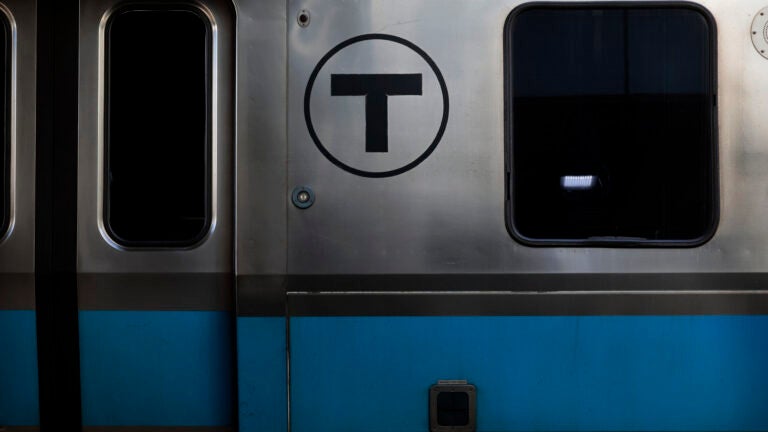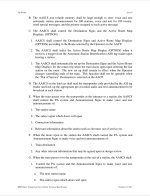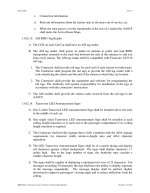Didn’t they already remove (or at least part of) the tracks?…

Now we really know the E Line is never getting back to Arborway
HorselessAge watched a crew digging up and removing the trolley tracks that once carried the E Line down Centre Street on its way to Forest Hills. Read morewww.universalhub.com
You are using an out of date browser. It may not display this or other websites correctly.
You should upgrade or use an alternative browser.
You should upgrade or use an alternative browser.
General MBTA Topics (Multi Modal, Budget, MassDOT)
- Thread starter Waldorf
- Start date
themissinglink
Senior Member
- Joined
- Jan 13, 2018
- Messages
- 1,498
- Reaction score
- 3,813

T board approves operating budget that ramps up spending. Now, waits for Legislature to act. - The Boston Globe
The MBTA's operating budget hinges on the expectation that the T will receive hundreds of millions of dollars more in state aid.
themissinglink
Senior Member
- Joined
- Jan 13, 2018
- Messages
- 1,498
- Reaction score
- 3,813

Smoke investigation near Stony Brook MBTA station prompts service disruption
“The MBTA apologizes to riders affected by the earlier Orange Line issue.”
Police say just before 8 p.m., a small brush fire on the third rail of the Orange Line between Stony Brook and the southbound side of Green Street caused minor smoking.
An MBTA inspector was able to put out fire with an extinguisher, according to Transit Police.
themissinglink
Senior Member
- Joined
- Jan 13, 2018
- Messages
- 1,498
- Reaction score
- 3,813

'We know this morning was frustrating for many': Reopened Blue Line hobbled by signal problems
The transit agency said it would not collect fares on the Blue Line or the East Boston ferry on Monday after signal problems snarled service.
www.boston.com
Just before 6 a.m. on Monday, the MBTA said shuttle buses were continuing to replace service between Government Center and the Airport to allow the completion of overnight track and signal work. By around 7:30 a.m., the agency said regular service was being resumed and shuttle buses were being “phased out.”
But then around 8:15 a.m., the MBTA reported a 30-minute delay due to a signal problem, announcing just before 11 a.m. that shuttle service would again replace train service due to “multiple signal issues at Maverick.”
[...]
Around 4 p.m., the transit agency said regular service had resumed, but warned that riders could experience “longer wait times and delays throughout the day due to an ongoing signal problem near Maverick.”
Last edited:
themissinglink
Senior Member
- Joined
- Jan 13, 2018
- Messages
- 1,498
- Reaction score
- 3,813

Mass. lawmakers reach deal to seed MBTA with $535 million from ‘millionaires’ surtax spending package - The Boston Globe
The package unveiled Monday splits the difference on MBTA funding proposed in bills in the House and Senate, and includes $300 million alone to replenish the MBTA’s budget reserve.
The surtax spending bill the Senate passed last month would have dedicated $370 million to the MBTA, including $200 million to replenish the agency’s budget reserve. The House, on other hand, sought far more, setting aside nearly $800 million for the T, most of which — $700 million — was tabbed for the agency’s reserve and deficiency funds.
The bill released Monday falls in the middle. It would dedicate $300 million for the T’s spending reserve, plus offer $175 million for workforce and safety funding. Another $40 million would go toward infrastructure upgrades, and $20 million would help fund the MBTA’s low-income fare program.
Longfellow
Active Member
- Joined
- Dec 12, 2023
- Messages
- 293
- Reaction score
- 717
I was riding with my friend on Blue (he commutes on it) and noticed that the train announcements were 1 station off. I asked and he said it's normal. Anyone know about this?
HenryAlan
Senior Member
- Joined
- Dec 15, 2009
- Messages
- 4,184
- Reaction score
- 4,450
I occasionally commute on the Blue Line and have never noticed that. But as it's occasional, it's possible that I just haven't paid enough attention. I should add, though, that I've noticed such issues now and then on all automated station announcements.I was riding with my friend on Blue (he commutes on it) and noticed that the train announcements were 1 station off. I asked and he said it's normal. Anyone know about this?
I notice this sometimes on basically any train, and not just Boston. Just a coincidence, but I've heard this problem a bunch, maybe 4-5 times, in the past couple of weeks. All on Red or Green trains.I was riding with my friend on Blue (he commutes on it) and noticed that the train announcements were 1 station off. I asked and he said it's normal. Anyone know about this?
I'd actually be curious how those systems work, and if they work better on the new CRRC trains. I don't ride Orange much these days, but I've never seen this problem there.
Teban54
Senior Member
- Joined
- Nov 13, 2021
- Messages
- 1,126
- Reaction score
- 2,797
Red Line's announcements being one stop off, particularly on the 1800s, is quite common.I notice this sometimes on basically any train, and not just Boston. Just a coincidence, but I've heard this problem a bunch, maybe 4-5 times, in the past couple of weeks. All on Red or Green trains.
I'd actually be curious how those systems work, and if they work better on the new CRRC trains. I don't ride Orange much these days, but I've never seen this problem there.
Source: I'm a frequent Red Line rider.
I take the Orange Line 2x daily during the week and I feel like I've observed the issue in question happen exactly once since the CRRC fleet replaced the old.I notice this sometimes on basically any train, and not just Boston. Just a coincidence, but I've heard this problem a bunch, maybe 4-5 times, in the past couple of weeks. All on Red or Green trains.
I'd actually be curious how those systems work, and if they work better on the new CRRC trains. I don't ride Orange much these days, but I've never seen this problem there.
JeffDowntown
Senior Member
- Joined
- May 28, 2007
- Messages
- 4,793
- Reaction score
- 3,656
I have noticed the announcement problem on the Blue Line. Train operators often come on the PA to correct the announcement.I occasionally commute on the Blue Line and have never noticed that. But as it's occasional, it's possible that I just haven't paid enough attention. I should add, though, that I've noticed such issues now and then on all automated station announcements.
F-Line to Dudley
Senior Member
- Joined
- Nov 2, 2010
- Messages
- 9,551
- Reaction score
- 10,418
It works the same way on all 4 lines. The cars ping RFID tags placed on the ROW coded with the station ID's, because GPS doesn't work well in the tunnels. Missed signals can cause hiccups in the system requiring the operator to manually intervene on the onboard computer to reset the station sequence, and that's particularly a problem with the Red 01800's.I notice this sometimes on basically any train, and not just Boston. Just a coincidence, but I've heard this problem a bunch, maybe 4-5 times, in the past couple of weeks. All on Red or Green trains.
I'd actually be curious how those systems work, and if they work better on the new CRRC trains. I don't ride Orange much these days, but I've never seen this problem there.
JeffDowntown
Senior Member
- Joined
- May 28, 2007
- Messages
- 4,793
- Reaction score
- 3,656
There is something really weird about the "unique coding" versus a "sequence of announcements". If the system really used unique coding mapped to unique messages, it would be self correcting (miss an RFID read, simple skip the announcement, and move on at the next RFID site to the correct message). Clearly the trigger is for next message in sequence, rather than for a unique message, so once a sequence step is missed, the system is fubar. Not a very robust design.It works the same way on all 4 lines. The cars ping RFID tags placed on the ROW coded with the station ID's, because GPS doesn't work well in the tunnels. Missed signals can cause hiccups in the system requiring the operator to manually intervene on the onboard computer to reset the station sequence, and that's particularly a problem with the Red 01800's.
To be fair, what you describe is the intended function of the system as per the 2013 specs which the CRRC cars are supposed to adhere to. Any issues therefore on the CRRC fleet is indeed odd.There is something really weird about the "unique coding" versus a "sequence of announcements". If the system really used unique coding mapped to unique messages, it would be self correcting (miss an RFID read, simple skip the announcement, and move on at the next RFID site to the correct message). Clearly the trigger is for next message in sequence, rather than for a unique message, so once a sequence step is missed, the system is fubar. Not a very robust design.
However, given that the same spec provides that the winning bidder is to provide new tags, its entirely possible that whatever encoding they've provided confuses the ca1990 electronics of the 1800s, which perhaps default to the "known station sequence".
The AASCS on the lead car shall read the transponder code provided by the ASI tag reader and look up the appropriate pre-recorded audio and text announcement to be broadcast at each station.
E. When the train passes over the transponder at the entrance to a station, the AASCS shall control the PA system and Announcement Signs to make voice and text announcements of:
1. The station name
2. The side(s) upon which doors will open
3. Connection information
4. Relevant information about the station such as elevators out of service etc.
Attachments
Last edited:
kdmc
Active Member
- Joined
- Nov 14, 2023
- Messages
- 241
- Reaction score
- 711
Just speculating, but I wonder if station-sequence is used a fallback behavior. e.g., "We passed a transponder but could not read its signal, so we will assume it is our last known position + 1."
You can imagine, then, how a semi-operational reader on a train would have an off-by-N problem if it knew it was passing transponders, but couldn't read them, and also missed N transponders entirely.
You can imagine, then, how a semi-operational reader on a train would have an off-by-N problem if it knew it was passing transponders, but couldn't read them, and also missed N transponders entirely.
themissinglink
Senior Member
- Joined
- Jan 13, 2018
- Messages
- 1,498
- Reaction score
- 3,813

MBTA to borrow $939 million as deficit looms - The Boston Globe
Stories you may have missed from the world of business.
The Massachusetts Bay Transportation Authority is borrowing to help fund transit upgrades. The MBTA plans to sell about $939 million in municipal bonds, according to preliminary bond documents. It is the latest US transit operator to shore up funds as COVID-19 aid from the federal government evaporates and ridership levels struggle to return to pre-pandemic levels. The agency’s deficit is projected to balloon to nearly $500 million by fiscal 2028, according to pro forma forecasts shared in February. It also needs at least an estimated $2.5 billion annually to address a backlog of repairs. Proceeds raised in the sale of the bonds will fund, in part, the modernization of Massachusetts’ subway fleets, the installation of new fare payment machines, and an expansion of its commuter rail fleet with new bi-level cars, according to the documents. — BLOOMBERG NEWS
themissinglink
Senior Member
- Joined
- Jan 13, 2018
- Messages
- 1,498
- Reaction score
- 3,813

MBTA to offer free rides, extended service during Boston’s Fourth of July celebration
The MBTA announced on Monday that it will be running free fares on the bus, ferry, Commuter Rail, and the RIDE at certain times on July 4th.
The MBTA announced on Monday that it will be running free fares on the bus, ferry, Commuter Rail, and the RIDE at certain times on July 4th.
Boston is predicted to host over a million visitors for July 4 and after 8:30 p.m. all services the MBTA provides will be free.
The public is encouraged to take public transportation to and from the 2025 Boston Pops Fireworks Spectacular and to other holiday events.


